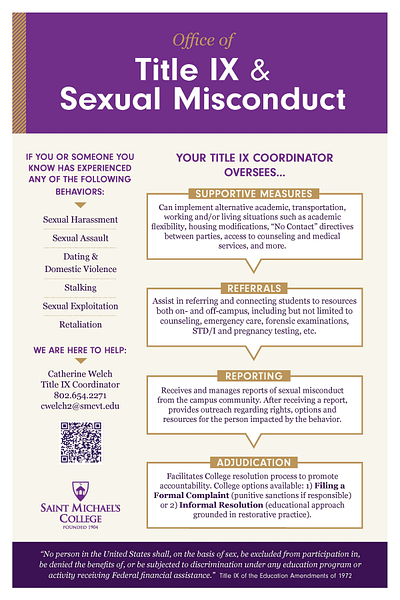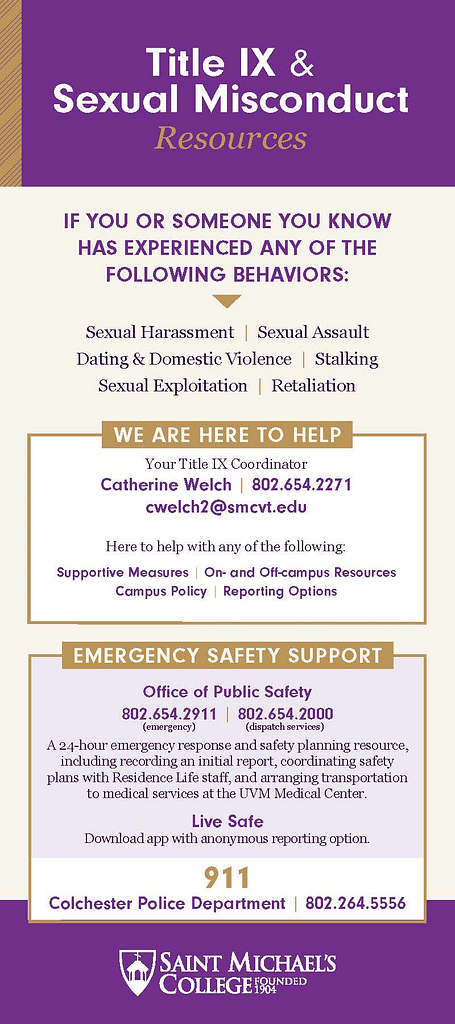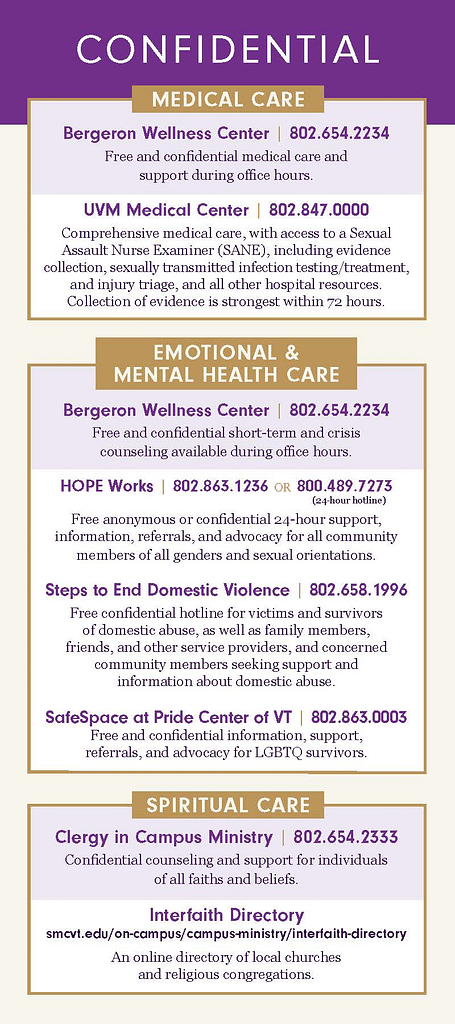Resources
Sexual Assault – How to Help A Friend:
 If someone tells you they were sexually assaulted, or are in a controlling and abusive relationship, or have been/are being stalked, know that you might be the first person they have told. Your response may influence whether they feel safe and supported in telling others or seeking additional help. They might not know how to tell you what happened or what is happening. Often, survivors of sexual assault will blame themselves for the situation.
If someone tells you they were sexually assaulted, or are in a controlling and abusive relationship, or have been/are being stalked, know that you might be the first person they have told. Your response may influence whether they feel safe and supported in telling others or seeking additional help. They might not know how to tell you what happened or what is happening. Often, survivors of sexual assault will blame themselves for the situation.
Remain Calm
It’s normal to feel outraged or even shocked by what your friend or family member has experienced, but expressing these emotions may cause your loved one to experience more pain or even confusion. Listen carefully to what your loved one has to say and keep the conversation focused on them and their experience rather than your reaction to what they are telling you.
Be a good listener
It takes incredible strength and courage for someone to reveal that they were assaulted, or that they are in an abusive relationship, or that they’re being stalked. Your friend may need your support now and in the future. Let them know that you are available and that they can choose when they want to talk and how much to share.
Ask Permission
It is a common human reaction to want to reach out with a hug to comfort the person who has been assaulted. However, it is important to remember that this person may not want to be touched. Simply asking “Can I give you a hug?” goes a long way in supporting your friend’s sense of safety and control.
If your friend declines, respect that decision.
Helpful responses
- “Thank you for telling me.”
- “I believe you.”
- “It’s not your fault.”
- “I’m sorry that happened to you.”
- “What can I do to help?”
- “You are a strong person.”
- “I’m glad you told me.”
Things to avoid
- Don’t interrogate or ask for more specific details than are being offered.
- Don’t ask “why” questions such as “why did you go there?” or “why didn’t you scream?”
- Don’t tell your friend what you would have done or what they should have done.
- Don’t take over making decisions about your friend/loved one’s care.
Believe
Remind your friend that this was not their fault. Let them know that you believe them and avoid judging them for what has happened.
Keep it confidential
Your friend has chosen to tell you something that may feel very private to them. Honor their confidentiality and do not share with anyone what was shared with you – unless your friend gives you permission. If you are worried about your friend, talk to them about the resources that are available and help them get connected to those resources.
Provide options and information
Your friend may want to consider getting a medical exam, collecting evidence, reporting to the police, and seeking counseling.
Let them make their own decisions
You can provide options and information and always let your friend make their own decisions. A person who has been assaulted or abused has been disempowered by another person, and it is important for them to have as much control as possible over their own decisions in the recovery process. After sharing some information, instead of taking charge, ask how you can help. Offer to accompany your friend to seek any services that they choose to use. Support the decisions your friend makes even if you don’t agree with them. Take your lead from them on how you can best help them.
Remind your friend that you care and that they are not alone
This is an important thing to remind your friend as they may feel isolated and alone after a sexual assault. Your friend may also worry that they will be thought of or treated differently by other people. Let your friend know that that is not the case for you and that you are available to help them.
Establish boundaries and seek support for yourself
While it is important to be a supportive and good listener, you cannot do these things at the expense of your own health or responsibilities. For instance, do not skip classes or call off work or other obligations every time your loved one calls. Instead, set a time to talk that works for both of you.
Remember, you can be a support person and a friend, but you are not responsible for their recovery process. Do not allow your loved one’s crisis to consume your own life because it is not a healthy option for either of you.
You may find that talking with a friend or counselor can help you work through your own feelings – this may be good for you and will enable you to be a better support to your friend.
The Bergeron Wellness Center here on campus is a free and confidential option available to you. To make an appointment to meet with a counselor, call Heidi Brodtman at 802-654-2234 or email her at hbrodtman@scvt.edu. If you prefer to meet with a counselor off campus, you can try one of the counselors listed from the list.
Be Aware of Red Flags
People who have been sexually assaulted experience a range of emotions. In fact, no two people will think or feel the same way as the next person. Consequently, it is important that you know how to recognize any red flags in your loved one. These indicators may be a sign that your friend or family member is in crisis.
For instance, if they seem to cry all the time, talk about wanting to die, or have lost interest in their favorite activities, they may need care from a professional counselor. Other things you need to watch for include changes in eating and sleeping habits, nightmares, and flashbacks.
If your loved one is experiencing any of these things, seek help as soon as possible. Encourage them to talk with a counselor or get medical attention. In an emergency, do not be afraid to call 911.
Continue to Extend Invitations
Don’t be surprised if your friend refuses your invitations to see a movie, have coffee, or go to dinner. It is not uncommon for victims of sexual assault to isolate themselves. But don’t give up on them.
Continue to invite them to do things with you. Even if they decline, most people still appreciate the invitation. It helps them feel like they are still valued and loved—especially at a time when they feel so alone.
Be patient with your loved one. Eventually, they will accept your invitations. Just don’t give up and stop asking. They need to know you are there even if they refuse the offer.

